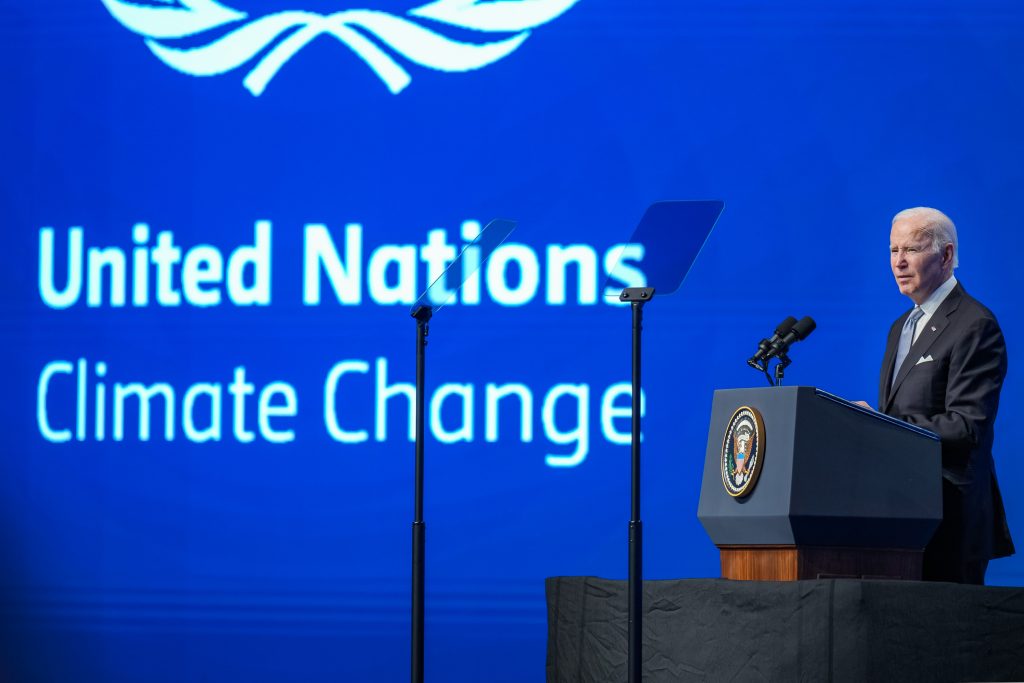A dramatic dip in U.S. domestic oil production of approximately two million barrels per day since President Biden’s inauguration has sparked intense debate within the political arena. Such was the vocal concern expressed by U.S. Rep. Matt Rosendale (R-MT), in a recent interview with Newsmax, as he shed light on the impact of the decline and criticized the current administration’s energy policy. His assertions raised grave questions about the country’s ability to efficiently meet energy demands, the economic fallout these changes may create, and potential geopolitical turbulence it may incite.
BIDEN’S ENERGY POLICY: ‘It truly does compromise our national security’: Rosendale
GOP Montana Rep. Matt Rosendale gives his take on why Biden’s stance on domestic energy production is so dangerous for the U.S. on “Wake Up America.”@AlisonMaloni @Glasgow_Jon @RepRosendale pic.twitter.com/nNSu8rs0Cl
— NEWSMAX (@NEWSMAX) August 28, 2023
In his discussion, Rosendale outlined how the White House’s energy strategy has fervently recoiled from the Trump administration’s approach. He explains that Biden has issued a series of executive orders designed to overturn former President Trump’s energy guidelines, in order to prioritize environmental considerations. These have included prohibiting oil and gas drilling on public land, the limitation of offshore drilling, and terminating the Keystone and Dakota Access networks.
Focusing on the Keystone XL pipeline, which was scrapped by Biden soon after he took office, Rosendale highlighted some alarming implications. This infrastructure could have delivered approximately 850,000 barrels of oil per day, a portion of which would have originated from Rosendale’s home state, Montana. “The tax revenue from that pipeline alone in Montana, which would have gone through some of the poorest counties in my state, would have generated $60 million a year of tax revenue, just the pipeline itself,” he stated.
Further criticisms pivoted to the administration’s refusal to open up land leases intended for oil and gas extraction, both onshore and offshore. Additionally, he cited that the administration has obstructed the construction of pipelines and processing facilities which deal with liquid natural gas.
However, the effects of these policies stretch beyond domestic concerns. Rosendale claimed that Biden’s energy policy is fostering an unhealthy reliance on unpredictable and occasionally aggressive foreign governments, a stark departure from the Trump administration’s policy. The elevated dependency of the United States and its European allies on precarious foreign entities raises serious security and economic concerns.
Consequently, Rosendale’s revelations have unveiled the potential downsides of an aggressive green agenda. Here we witness the implication not just on the nation’s energy grid and economy but also the geopolitical balance of power. The fundamental question remains – are we, as a nation, ready to surrender our energy autonomy for being environmentally responsible?
In conclusion, Rosendale’s revelations underscore the broader repercussions of an abrupt shift in energy policy, touching upon domestic economic impact, international security dynamics, and geopolitical balance. He concludes with a powerful question, one which calls for a hard look at the direction of our national energy policy: “It’s costing us how much more to refill the Strategic Oil Reserve? And then they’re buying oil from Venezuela?” Raising the question way beyond partisan politics, his words force a much-needed conversation on the crossroads where our environmental priorities meet the practicalities of economic and geopolitical stability. As we decipher these complexities, we as a nation, fueled by liberty and powered by an unwavering entrepreneurial spirit, must make a conscious decision to balance our environmental responsibility without compromising our sovereignty.



